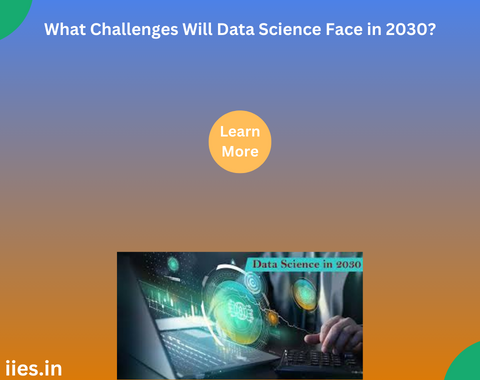In the coming decade, the demand for data science is expected to skyrocket as businesses recognize the value of informed decision-making. The era of intuition-based decisions is rapidly fading, making way for a data-centric approach that not only mitigates risks but also identifies untapped opportunities. As industries become more interconnected and global, the ability to harness the power of data will be a key determinant of success.
Technological Advancements:
The field of data science is intricately linked with technological advancements. With the advent of artificial intelligence (AI), machine learning, and advanced analytics, the capabilities of data science have expanded exponentially. In 2030, we can anticipate even more sophisticated tools and algorithms that will enable data scientists to glean deeper insights from complex datasets.
Automation and AI Integration:
While concerns about job displacement due to automation persist, data scientists are likely to find themselves at the forefront of this technological revolution. Instead of rendering data science obsolete, automation and AI integration will enhance the efficiency and capabilities of data scientists. Routine tasks may become automated, allowing professionals to focus on more complex and creative aspects of data analysis, further elevating the value they bring to the table.
Industry-Specific Applications:
The demand for data science will vary across industries, but its ubiquity is undeniable. In healthcare, for instance, predictive analytics can revolutionize patient care by anticipating disease outbreaks and optimizing treatment plans. Similarly, in finance, data science can aid in fraud detection, risk management, and portfolio optimization. As more industries recognize the transformative potential of data, the demand for skilled data scientists will persist and likely intensify.
The Role of Big Data:
Big data, characterized by the sheer volume, velocity, and variety of information, is a driving force behind the demand for data science. In 2030, the volume of data is projected to be astronomical, requiring advanced analytics to extract meaningful insights. The ability to navigate and derive value from big data will be a defining factor for organizations seeking to stay ahead in their respective fields.
Global Connectivity and Data Security:
The increasing interconnectivity of the global economy has also led to a surge in data exchange. As organizations collaborate and operate on a global scale, the need for robust data security measures becomes paramount. Data scientists will play a crucial role in developing and implementing strategies to safeguard sensitive information, making their expertise indispensable in an era marked by constant cyber threats.
The Rise of Data Ethics:
In the future, ethical considerations surrounding data usage will become more pronounced. With the potential for data misuse and privacy breaches, organizations will need to navigate a complex landscape of regulations and ethical guidelines. Data scientists will be at the forefront of ensuring responsible and ethical data practices, emphasizing the need for transparency and accountability in the evolving digital ecosystem.
Educational and Skill Development Initiatives:
To meet the burgeoning demand for data scientists, educational institutions and training programs are likely to adapt and evolve. The curriculum will become more specialized, incorporating emerging technologies and industry-specific applications. Continuous learning and skill development will be crucial for professionals to stay relevant in a field that is constantly evolving.
As the demand for data science continues to surge, the role of data scientists is also expected to evolve. Beyond traditional data analysis, data scientists in 2030 will likely find themselves engaging in more strategic and creative endeavors. Collaboration with domain experts, business leaders, and stakeholders will become integral, as data scientists bridge the gap between raw data and actionable insights, contributing directly to organizational growth and innovation.
Moreover, interdisciplinary collaboration will be on the rise, with data scientists working alongside professionals in fields such as psychology, sociology, and design. This shift underscores the recognition that data science is not solely about numbers but also about understanding human behavior, societal trends, and user experiences.
Data Science in Emerging Technologies:
The coming decade is anticipated to witness the integration of data science with emerging technologies such as the Internet of Things (IoT) and blockchain. As more devices become interconnected, generating vast amounts of real-time data, data scientists will be tasked with extracting meaningful patterns and predicting future trends. Blockchain technology, with its focus on transparency and security, will necessitate data scientists to develop innovative solutions for managing and analyzing decentralized data structures.

